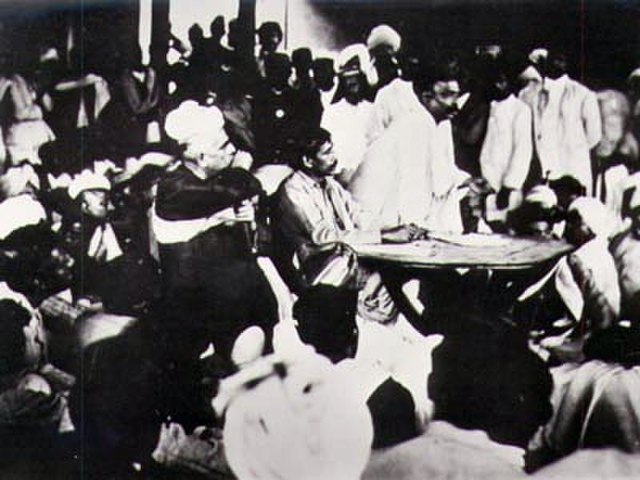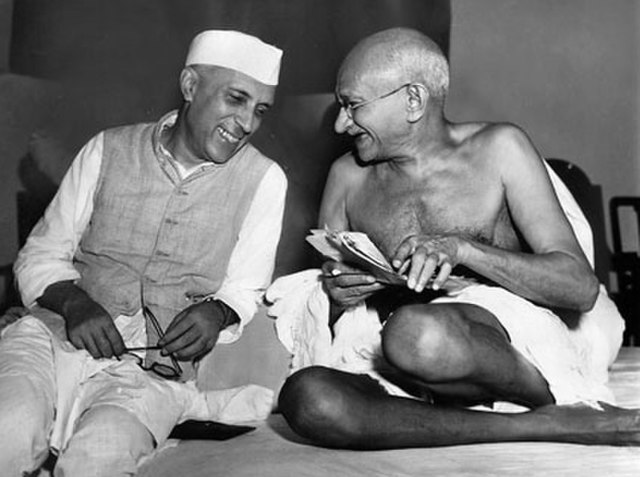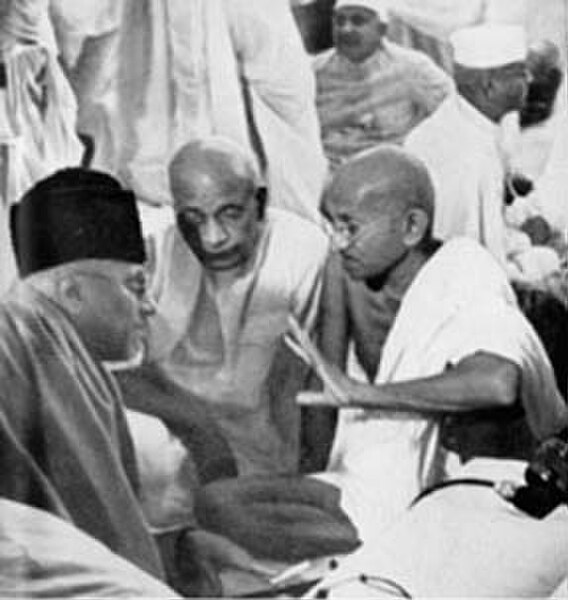Allan Octavian Hume, CB ICS was a British political reformer, ornithologist, civil servant and botanist who worked in British India, who founded the party Indian National Congress. He supported the idea of self-governance by Indians. A notable ornithologist, Hume has been called "the Father of Indian Ornithology" and, by those who found him dogmatic, "the Pope of Indian Ornithology".
Allan Octavian Hume (1829–1912) (scanned from a Woodburytype)
Hume's grave in Brookwood Cemetery
Hume at the first session, Bombay, 28–31 December 1885
Hume on a 1973 stamp of India
The Indian National Congress (INC), colloquially the Congress Party or simply the Congress, is a political party in India with deep roots in most regions of India. Founded on 28 December 1885, it was the first modern nationalist movement to emerge in the British Empire in Asia and Africa. From the late 19th century, and especially after 1920, under the leadership of Mahatma Gandhi, the Congress became the principal leader of the Indian independence movement. The Congress led India to independence from the United Kingdom, and significantly influenced other anti-colonial nationalist movements in the British Empire.
First session of Indian National Congress, Bombay, 28–31 December 1885
Bal Gangadhar Tilak speaking in 1907 as the Party split into moderates and extremists. Seated at the table is Aurobindo Ghosh and to his right (in the chair) is G. S. Khaparde, both allies of Tilak.
Mahatma Gandhi and Jawaharlal Nehru during a meeting of the All India Congress, in 1946
Azad, Patel and Gandhi at an AICC meeting in Bombay, 1940







